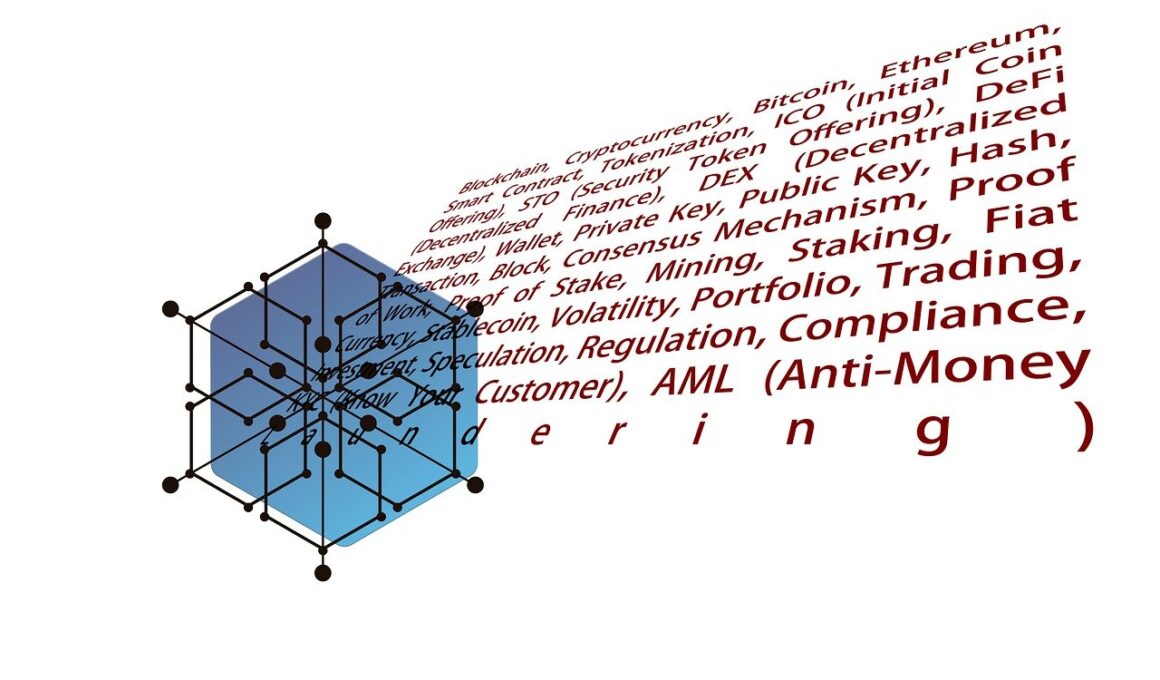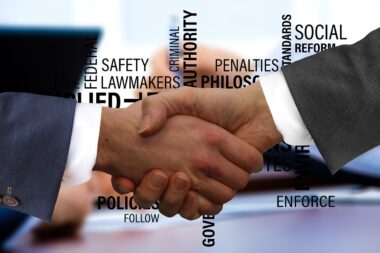Technology Compliance: Challenges for Modern Corporations
As technology advances, corporations face an increasing number of compliance challenges. From data privacy to cybersecurity laws, it is essential for modern companies to stay informed about their legal obligations. One of the primary challenges is ensuring that technology systems comply with industry regulations. For example, firms in the financial sector must adhere to strict guidelines on data handling and reporting. Additionally, companies that operate in multiple jurisdictions often confront the complexity of varying laws. This means a one-size-fits-all approach to compliance is usually ineffective. In practice, organizations may need to develop customized solutions for each region, increasing both time and cost. Another aspect is keeping up with the constant evolution of technology. New tools and platforms emerge regularly, and with them come potential compliance issues. Moreover, employee training becomes essential to ensure everyone understands compliance requirements. Integrating compliance into business strategies from the top down can significantly mitigate risks associated with technology non-compliance. Finally, fostering a culture of ethical behavior is paramount, as it influences every aspect of compliance and can enhance corporate reputation in the long run.
Data Privacy and Security
Data privacy and security represent critical areas where corporations must navigate numerous compliance challenges. With regulations like the GDPR and CCPA in place, companies must ensure they manage customer data responsibly and transparently. Failure to comply with these laws can result in severe financial penalties and reputational damage. To tackle these issues effectively, corporations often invest in advanced cybersecurity systems, critical for protecting personal and sensitive information. Regular audits and assessments help identify vulnerabilities in data handling processes, allowing organizations to rectify potential issues proactively. Furthermore, educating employees on data privacy becomes increasingly important as human error often contributes to security breaches. Training programs that highlight the significance of data compliance can empower staff to recognize and mitigate risks. Another complicating factor is third-party relationships, as organizations increasingly rely on external vendors for various services. Corporations must ensure that their partners also adhere to stringent data privacy standards. Consequently, drafting robust contracts with clear compliance expectations can help safeguard against potential breaches stemming from external sources. By addressing these multifaceted challenges, companies can build a strong foundation of trust with their customers.
The rapid pace of technological change also leads to significant challenges in compliance monitoring. As new tools are introduced, compliance frameworks may require rapid updates to ensure they remain relevant. Corporations often find themselves in a constant state of adapting their policies and procedures to fit emerging technologies. One effective strategy to manage these challenges is adopting a proactive approach toward regulatory changes. By staying ahead of the curve and anticipating new compliance requirements, organizations can avoid pitfalls associated with reactive measures. Consistent monitoring of both internal and external environments helps businesses remain agile in responding to evolving regulations. Moreover, implementing a centralized compliance management system simplifies oversight across various departments, ensuring all teams are aligned with organizational compliance goals. Another critical element is engaging legal experts who specialize in technology compliance. Their guidance can help navigate the complexities of various regulations and ensure that organizations implement best practices. Finally, fostering open lines of communication between IT and compliance departments can lead to better synergy. By working collaboratively, these teams can identify potential compliance risks early, mitigating issues before they arise.
Ethical Considerations in Technology
Corporate ethics play a vital role in the realm of technology compliance, as organizations face significant moral decisions when implementing new systems. An ethical framework can guide decision-making processes and help prioritize compliance efforts. Companies must ensure they don’t merely view compliance as a legal obligation; rather, it should align with their core values and mission. Emphasizing ethical technology use fosters trust among clients, employees, and stakeholders. For example, when deploying artificial intelligence, businesses must consider issues like algorithmic bias and transparency. This awareness allows companies to pave the way for responsible tech use while addressing compliance challenges effectively. Furthermore, the integration of ethics into compliance training programs can empower employees to make informed decisions that align with company values. When employees understand the ethical implications of their actions, it promotes a culture of accountability. Moreover, organizations could benefit from creating ethics committees to evaluate technology investments as part of their governance strategies. By doing so, companies can uphold their commitment to ethical standards while staying compliant with regulations.
The incorporation of compliance technologies represents a significant trend in managing regulatory obligations. By leveraging automation, organizations can streamline compliance processes, reduce human error, and enhance overall efficiency. Technologies such as AI and machine learning can be pivotal in monitoring compliance across various channels in real time. For instance, AI-driven analytics can help identify patterns or anomalies that may indicate compliance failures. By automating compliance-related tasks, businesses free up valuable resources to focus on strategic initiatives. However, corporations must be mindful of the ethical considerations surrounding AI usage. Ensuring these technologies comply with data privacy laws is crucial to maintain customer trust. Furthermore, organizations should continually evaluate the performance and effectiveness of compliance technologies. Regular assessments help identify gaps and areas for improvement, allowing businesses to stay ahead of regulatory requirements. Another benefit of embracing compliance technologies is the enhancement of reporting capabilities. Automated reporting tools can simplify compliance documentation, making it easier for organizations to demonstrate adherence to legal obligations. By embracing these technologies, companies can significantly bolster their compliance efforts while ensuring a forward-thinking approach.
Challenges of Global Compliance
Global compliance presents unique challenges that multinational corporations must navigate diligently. Operating in multiple countries necessitates a deep understanding of various regulatory landscapes. Each jurisdiction may have different laws, ethical standards, and cultural expectations, which complicates compliance efforts. Companies often struggle to create a unified compliance strategy that respects local variations while ensuring adherence to a global standard. One approach to overcoming this challenge is establishing dedicated compliance teams in different regions. These teams can easily focus on local laws and provide accurate guidance to the central office on emerging trends. Implementing technology-driven solutions can also aid in tracking compliance activities across borders, ensuring that all areas meet requisite standards. Additionally, training programs tailored to specific regions can foster cultural awareness among employees, enhancing their understanding of compliance requirements. Effective communication is crucial for maintaining compliance across borders; companies must establish clear channels for reporting potential violations. Furthermore, fostering relationships with local regulators can build goodwill and facilitate smoother compliance processes. By addressing the complexities of global compliance, corporations can effectively minimize legal risks while promoting ethical business practices.
Finally, the assessment of compliance culture within organizations plays a fundamental role in achieving sustainable technology compliance. A strong compliance culture promotes ethical behavior at all levels and facilitates proactive engagement in compliance efforts. Leadership commitment to compliance sets the tone for the entire organization. When executives prioritize compliance, employees are more likely to follow suit. To cultivate a robust compliance culture, organizations should implement regular training sessions, provide resources for employees, and encourage open discussions about compliance challenges. Recognizing and rewarding ethical behavior reinforces the importance of compliance across the organization. Moreover, conducting regular assessments of the compliance program enables organizations to identify strengths and weaknesses within their culture. Soliciting employee feedback on compliance matters can lead to actionable insights and foster continuous improvement. Finally, transparency is crucial in embracing compliance culture; organizations should openly communicate their policies, goals, and successes. By investing in their compliance culture, companies can navigate technology compliance challenges effectively and demonstrate accountability to stakeholders. Emphasizing ethical behavior and dedication to compliance ultimately enhances corporate governance.
Conclusion: Building a Compliance Framework
In conclusion, the immense challenges of technology compliance propel corporations to adopt comprehensive frameworks that prioritize ethical conduct and regulatory adherence. These frameworks must integrate various aspects such as data privacy, security measures, and ethical considerations while being adaptable to ongoing changes in technology and law. In building a robust compliance structure, organizations should prioritize investment in training and compliance technology, fostering a culture in which all employees recognize their role in maintaining compliance. This requires creating an inclusive environment that encourages employees to voice concerns and report potential violations. Additionally, corporations should consistently evaluate the effectiveness of their compliance programs and adjust them according to feedback and emerging trends. Strong leadership commitment to compliance is essential, as it underscores the importance of adhering to ethical standards in technology deployment. Ultimately, successful compliance frameworks enhance corporate governance and improve overall organizational reputation. As technology continues to evolve, the proactive approach to compliance will mitigate risks while promoting ethical behavior in the business landscape, supporting sustainable success for modern corporations.





